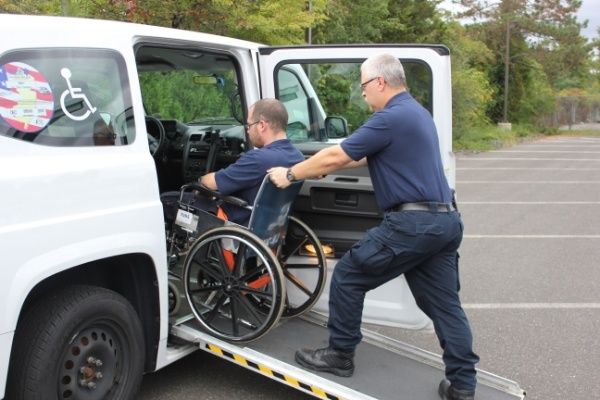
Workers Comp For Non-Emergency Medical Transport in Illinois businesses. Employees in this field face risks like accidents, physical strain, and other work-related injuries. Complying with Illinois workers’ comp laws ensures employee protection, business continuity, and legal compliance. This article will explore the essentials of workers’ comp for NEMT businesses in Illinois, addressing legal obligations, benefits, and strategies to minimize risks and optimize costs. What Is Workers’ Compensation? Workers’ compensation is an insurance program that provides financial support to employees injured or made ill while performing job duties. Illinois law requires all employers to provide workers’ compensation insurance for their employees, regardless of whether they are full-time, part-time, or temporary. Workers Comp For Non-Emergency Medical Transport in Illinois businesses must ensure coverage for all roles Workers’ comp covers all medical expenses related to work injuries, including Emergency care, Surgery, Physical, therapy, Prescription medication, Wage Replacement Employees unable to work due to injuries receive a portion of their wages, usually two-thirds of their average weekly pay. Compensation extends to temporary or permanent disabilities caused by work-related injuries. If an employee suffers a fatal injury, their dependents receive financial assistance, including funeral expenses and ongoing support. Frequent driving increases the risk of traffic collisions, especially in urban areas with high congestion. Employees often face injuries while helping patients with mobility limitations, such as back or joint strain. Driving for long hours or performing repetitive tasks can lead to conditions like carpal tunnel syndrome or chronic back pain.
Employees must report injuries to their employer within 45 days of the incident. Delayed reporting may result in claim denial. Employers should record all details, including the injury’s nature, location, and time, along with witness statements if applicable. Injured employees must consult a healthcare provider approved by the employer’s insurance network for assessment and treatment. The employer files a claim with the workers’ compensation insurance provider, which evaluates the case and determines coverage. Conduct regular safety training for employees, focusing on proper patient handling, safe driving practices, and risk mitigation. Equip vehicles with GPS trackers and telematics systems to monitor driving behavior, reduce accidents, and optimize routes. Encourage injured employees to resume work in modified roles to reduce downtime and claim costs. Consult with a workers’ compensation insurance broker to find a tailored policy that meets your business needs. Encourage employees to report workplace hazards or near-miss incidents to improve safety standards. Recognize and reward employees who consistently follow safety protocols, fostering accountability and motivation.
Workers Comp For Non-Emergency Medical Transport in Illinois Frequent claims or high-risk operations can increase insurance premiums. Focus on preventive measures and reduce workplace injuries to keep premiums manageable. Insurance providers may deny claims due to incomplete documentation or late reporting. Maintain accurate records and implement efficient reporting systems to resolve disputes promptly. An NEMT driver in Illinois sustained injuries in a car accident while transporting a patient. Workers’ compensation covered their medical bills, therapy sessions, and lost wages during recovery. A caregiver injured their back while assisting a patient into a wheelchair. Workers’ comp funded their treatment and provided temporary disability benefits. Track vehicle usage and driver behavior with telematics to identify risky habits and enforce safer driving practices. Use digital platforms to provide employees with up-to-date training on workplace safety and compliance requirements. Selecting the right workers’ compensation insurance provider is crucial. Look for Partnering with a provider experienced in the transportation and healthcare industries can make managing claims and compliance more efficient. Workers’ compensation is essential for non-emergency medical transport businesses in Illinois. By adhering to state laws, reducing workplace risks, and fostering a culture of safety, NEMT companies can protect their workforce and ensure operational continuity. Prioritize proactive measures and collaborate with experts to minimize costs and maximize employee well-being. Secure your business’s future by implementing a comprehensive workers’ compensation plan today.



Leave a Reply